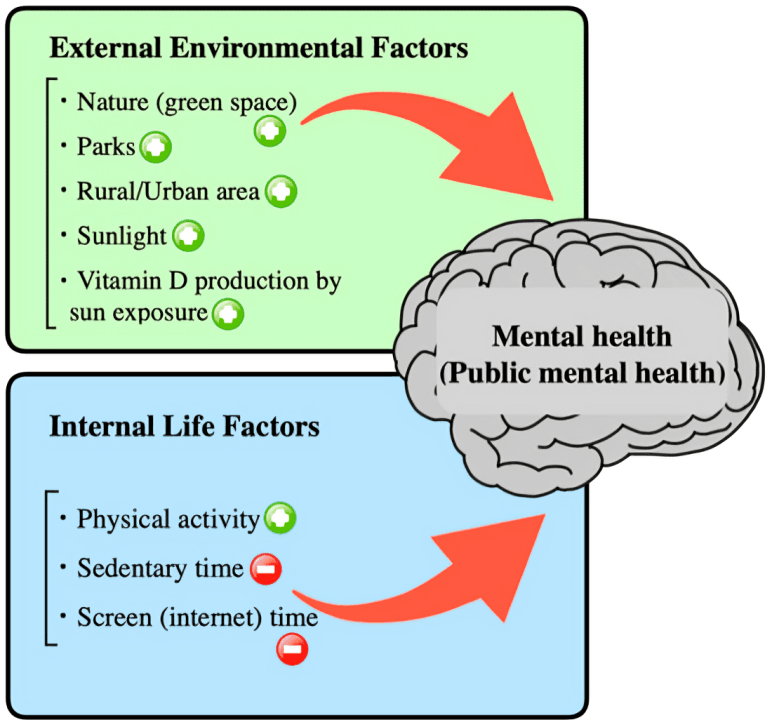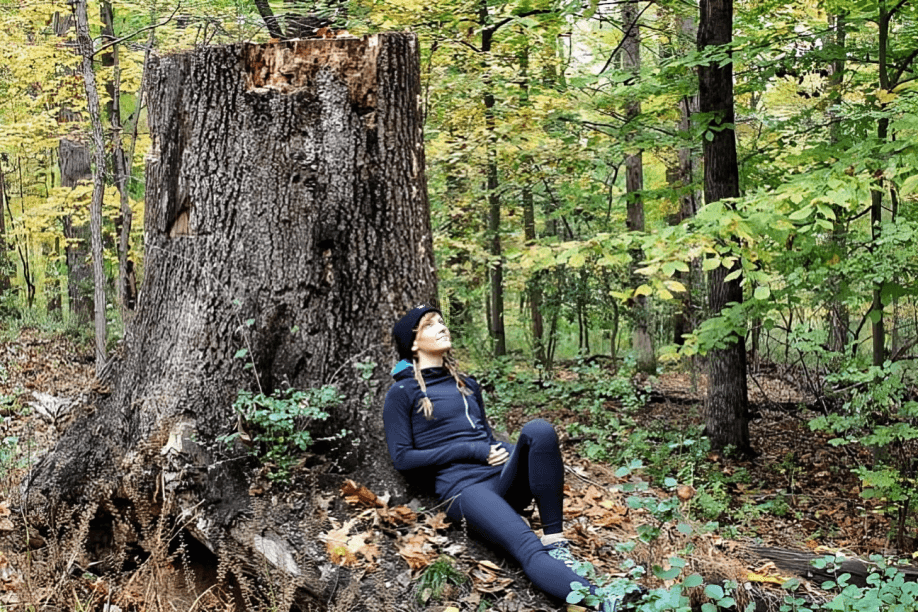
“
Nature therapy has become a powerful tool for enhancing mental well-being. By immersing ourselves in natural environments, we can improve mental clarity, reduce stress, and foster emotional healing. Nature therapy helps mental well-being by reconnecting us with the Earth, allowing us to tap into its calming and restorative effects.1
1
”
Nature therapy improves mental well-being by reducing stress, promoting relaxation, and enhancing mood. Time spent in natural settings can lower cortisol levels, helping the body recover from mental and emotional strain. 1
Spending time outdoors boosts mental health by enhancing attention and concentration. Nature's calming environment helps reduce mental fatigue, allowing the brain to recharge and improve focus over time. 2

Exposure to natural environments has been linked to reduced symptoms of anxiety and depression. Nature therapy provides a safe space to process emotions, helping individuals reconnect with themselves and find inner peace.
Nature's beauty and serenity foster positive emotions, making individuals feel more connected to the present moment. The calming effect of nature improves emotional stability, promoting a sense of calm. 3
Nature therapy encourages physical activity, such as walking or hiking, which has been proven to improve mental health. Exercise boosts endorphins, which in turn help elevate mood and reduce symptoms of depression. 4
Spending time in natural surroundings can enhance creativity. Nature's stimuli help refresh the mind, promoting creative thinking and problem-solving by encouraging free-flowing thoughts and reducing mental barriers. 5
Nature therapy can increase overall well-being by enhancing social connections. Group outdoor activities foster bonding and a sense of community, strengthening relationships and providing emotional support for participants. 6
Green spaces, such as parks and forests, are natural stress relievers. Nature therapy helps reduce physiological stress, with studies showing that individuals feel more relaxed and restored after time spent in such settings. 7

Nature therapy can improve sleep quality. Exposure to natural light during the day helps regulate circadian rhythms, while being in nature reduces stress and promotes relaxation, making it easier to fall asleep at night.
Walking through nature has a grounding effect, connecting individuals to the earth. This helps reduce negative thoughts and feelings of isolation, boosting mental health by fostering a sense of belonging and stability. 8
Nature therapy enhances mindfulness by encouraging individuals to focus on their surroundings, such as sounds, smells, and textures. This mindfulness practice reduces rumination, helping individuals stay present. 9

Forest bathing, or "Shinrin Yoku," has been shown to improve mental well-being. Immersion in forests lowers blood pressure, reduces anxiety, and promotes emotional balance, creating a sense of calm and restoration.
Nature's tranquility helps individuals develop better emotional resilience. Time spent outdoors allows people to process emotions and build the strength needed to cope with challenging situations in daily life. 10
The natural world provides opportunities for mindfulness and self-reflection, promoting a deeper connection to oneself. Nature therapy allows individuals to slow down, center their thoughts, and achieve peace of mind. 11
Being in nature stimulates the production of serotonin, a neurotransmitter responsible for regulating mood. This natural boost in serotonin helps reduce stress and promotes an overall sense of well-being and happiness. 12

Nature therapy provides a safe, non-judgmental environment where individuals can escape from daily pressures. The peaceful surroundings allow people to let go of societal expectations and focus on personal growth.
Nature therapy can serve as a form of emotional release. Being outdoors allows individuals to let go of pent-up emotions, reducing tension and providing an outlet for processing grief, anger, and sadness. 13
Nature's sensory experiences, such as the smell of fresh air or the sound of flowing water, help reduce mental clutter. This sensory engagement encourages a deeper sense of calm and clarity, aiding mental health. 14
Nature therapy offers a sense of escape from technology and constant connectivity. Disconnecting from digital distractions allows individuals to reconnect with themselves and their surroundings, promoting a sense of peace. 15
The calming presence of nature supports emotional healing by providing a gentle, supportive environment for reflection. Nature therapy eases emotions and brings comfort through nature's beauty. 16


